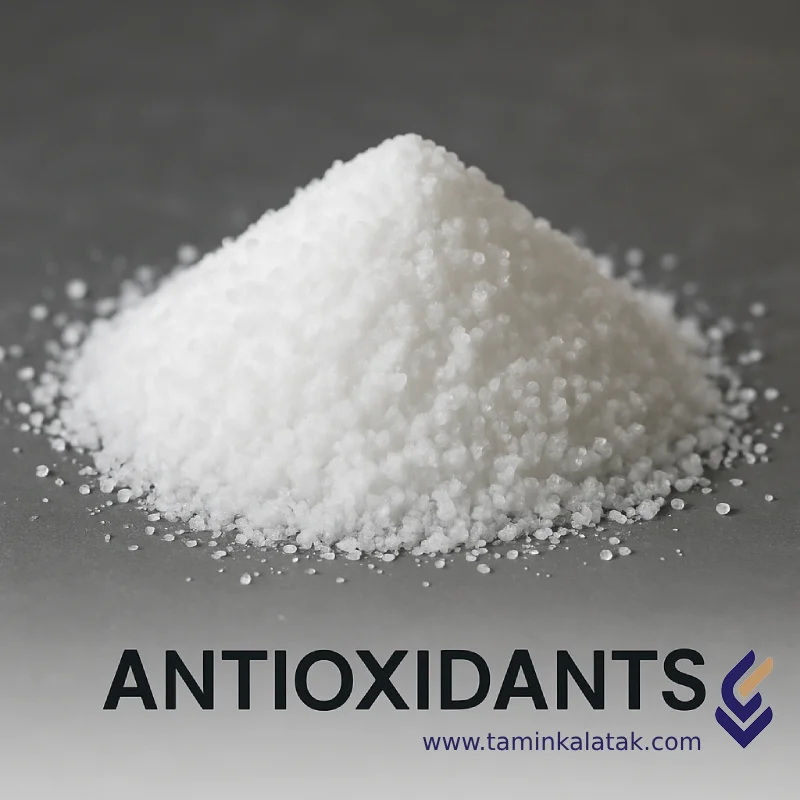Polymers are made up of very large molecules made up of many repeating units called monomers, which ultimately form this long polymer chain
AntiOxidants
Antioxidants are compounds used across polymer, food, pharmaceutical, and many other industries to prevent oxidation. In the polymer industry, these substances play a crucial role in prolonging lifespan, preserving quality, and maintaining performance of polymers under harsh environmental conditions.
Structure of Antioxidants
Antioxidants are generally classified into two main categories:
-
Primary Antioxidants (Phenolic Type):
Examples include BHT and Irganox, which inhibit free radicals, thereby preventing the degradation of polymer chains. -
Secondary Antioxidants (Phosphite or Thioester Type):
Examples include Irgafos, which react with peroxides formed during the oxidation process, neutralizing them effectively.
The chemical structure of antioxidants typically consists of phenolic rings or phosphite groups that react with free radicals or peroxides to prevent further oxidation.
Characteristics of Antioxidants
-
Excellent heat resistance
-
High thermal and oxidative stability
-
Non-volatile under processing conditions
-
Help in preserving color and appearance of polymers
-
Compatible with most polymers such as PE, PP, PS, and PA
Applications of Antioxidants
Antioxidants are widely utilized in various industries, including:
✅ Plastics Industry: To increase the service life of plastic products and prevent brittleness.
✅ Food Packaging: To prevent fat oxidation and maintain flavor stability.
✅ Automotive Industry: To stabilize plastic components exposed to engine heat.
✅ Household & Electronics: To provide UV and thermal resistance for extended durability.
✅ Medical & Pharmaceutical Fields: To protect oxidation-sensitive drugs from degradation.
Disadvantages of Antioxidants
-
Some antioxidants may migrate to the surface of the material over time.
-
The production or import cost of certain advanced grades can be relatively high.
-
Potential chemical incompatibility with other additives in complex formulations.
Advantages of Antioxidants
✅ Extend the lifespan of polymeric materials and reduce replacement costs.
✅ Preserve mechanical, optical, and aesthetic properties over time.
✅ Improve processability of polymers under high-temperature conditions.
✅ Can be combined with other additives such as UV stabilizers or antistatic agents.
✅ Offer a wide range of options for different environmental and performance requirements.
AntiOxidants
| Products | Grade | Mfi (g/10 min) | Density (g/mm3) | Process Metod | Applications | Data Sheet | MSDS |
|---|---|---|---|---|---|---|---|
| Antioxidants | |||||||
| Antioxidants |







